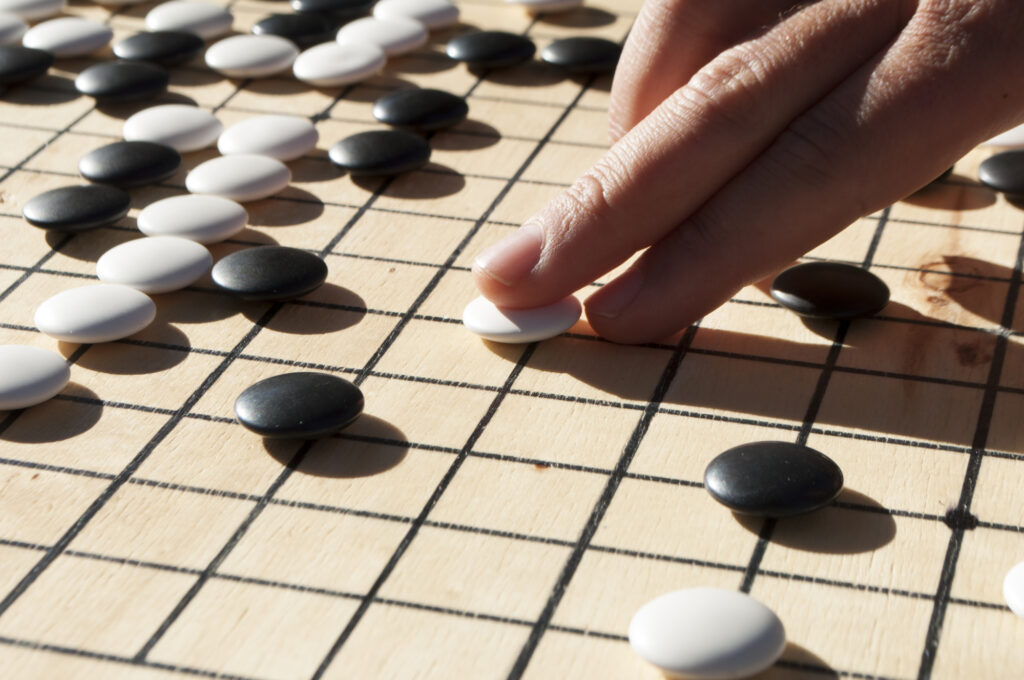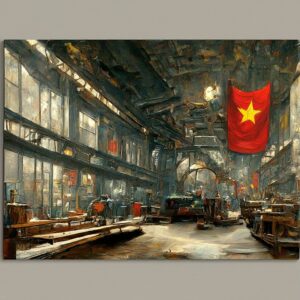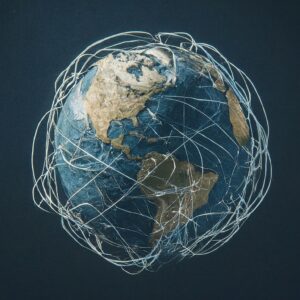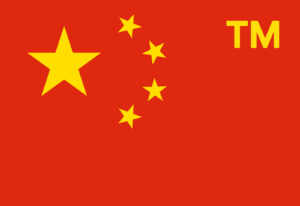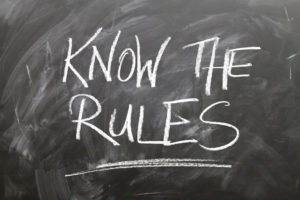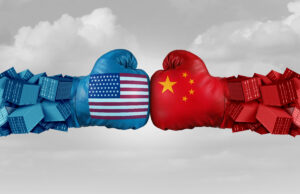Yesterday, the AP published an article entitled Amid Strained US Ties, China Finds Unlikely Friend in Utah. I spoke with an AP journalist last year when they were researching this story, and I know and have spoken to some of the people mentioned in this article. I am not surprised about its tone or its angles, only about its timing. And I do have some misgivings about the apparent conclusions of the article, which I discuss below.
This is Personal in a Good Way
This article is personal to me but not in a bad way. It is always fun to wake up on a Monday morning and see your home state, your religion, your family, and your career tied up in one news story. I am a lifelong member of the Church of Jesus Christ of Latter-day Saints (the “Church”) now living in Utah, but I did not grow up in Utah. That means I grew up with thick skin, and I learned not to be too defensive about anyone throwing shade on things I care deeply about and am invested in.
I got my start learning Cantonese in 2001 at the Church’s Missionary Training Center in Provo, UT for 12 grueling weeks before moving to and living in Hong Kong for the next 22 months (also grueling but punctuated with some excellent, soul-stretching experiences). Not long after that, I spent a year in Sichuan Province in Mainland China teaching English while trying to learn Mandarin to complement my Cantonese. Collectively, these were such formative experiences for me that I changed my college major to Chinese studies when I returned to the US.
That was more than half of my life ago. Now, as a practicing international M&A attorney, I use my Chinese (Mandarin) regularly as part of my professional life and to maintain personal relations with former students and colleagues, as well as prospective clients.
I also use Chinese for personal enrichment because learning Chinese makes me a better student of English and other languages. It also makes me a more compassionate individual who can empathize with people who adopt new languages and cultures, sometimes willingly and sometimes through necessity.
I also have taken concrete steps to ensure my family is steeped in Chinese culture, current events, and languages. My adventurous wife joined me in Sichuan Province for that year, even though she has no Chinese heritage and at the time had no Chinese language training. One of our children is among the large cohort of Utah K-12 students in the dual language immersion program (“DLI”) that includes Chinese, French, German, Portuguese, Russian, and Spanish. 20% of all US students in the Chinese immersion program are in Utah. I speak Chinese with my children at home so that my non-Chinese immersion children can be exposed to the language.
The AP’s reference that “several of Utah’s public schools have robust K-12 Chinese immersion programs” is significantly understated. There are 39 schools currently teaching this Chinese program in Utah, out of 160 DLI schools in Utah.
Why China “Likes” Utah, and Why Utah “Likes” China
In Utah, we actively promote second language acquisition in education, business, and religious circles. The state is pro-immigration, pro-business, pro-underdog, and pro-collaboration. All these factors mean that many Utah businesses, the state’s leaders in government, religious, and education groups, and many of its families have significant and frequent reminders, incentives, and motivation to be as welcoming as possible to all things foreign.
But like almost every seemingly simplistic subject, Utah has many layers below the surface, even for those who think they know Utah well. The state has significant ties to the defense and intelligence communities, with 10% of Utah’s economy tied to the defense sector as of 2021.
Former Utah governor and 3x US ambassador Jon Huntsman (Singapore, Russia, and China), alongside many others who I know through my work on the board of World Trade Center Utah, are almost universally champions of a pragmatic viewpoint in dealing with China, though there are many differing viewpoints and motivations here.
China has Business and Political Allies in Utah
This is true, though it is less certain whether those business and political allies remain ignorant of the CCP’s agenda. Some Utah universities kept their Confucius Institutes open longer than those in other states, but most have been shuttered. The University of Utah’s is still holding events, but the only other institute, at Southern Utah University, closed its doors in 2022.
Taowen Le has a deeply embedded, outsized role in Utah due to his decades of living and cultivating relationships here, and he is clearly a strong advocate for China. However, if he is not being directly or indirectly compensated for his role as a “foreign agent” that would otherwise bring him under FARA’s oversight, he is merely acting as an engaged citizen.
Dan Stephenson, who I know personally, has a deep love and respect for China and its people, thanks to his father’s bridge building with China as a state legislator. It is not uncommon for children to build business ties on the backs of their parents’ political legacies. Based on his representations, Dan indicates that he has not taken any role representing the Chinese government for remuneration that would require him to register under FARA.
Aside from these prominent examples, many Utah-based businesspeople, including me, are invested in the future success of US-China relations. The opinions and efforts range from hand-wringing and finger-pointing at overreactions at the federal government level to a few unabashed calls for decoupling. But most sit firmly in between trying to advocate for full disclosures and level heads. My friends at the relatively new company Strider fit in the “trust but verify” category, offering a significant SAAS product that allows companies to see people-to-people connections that may increase a company’s risk profile when dealing with China or Chinese-related employees.
China has a Positive Image in Utah
This is somewhat true, depending on which circles you travel in and what you read between the lines. The AP called out Xi Jinping’s note to a class of Utah dual language immersion students encouraging them to become young ambassadors between the US and China. That is precisely the reason the DLI program was established. We are creating a generation of future ambassadors that speak the language like natives, which doesn’t directly equate with being CCP ambassadors, even if the CCP propaganda machine suggests otherwise.
In my circles, everyone knows China is a significant issue for a variety of reasons. They are torn on what to do about China in the future, but that does not equate to unequivocal support for normalizing relations and ignoring the significant downsides of engaging with a CCP-run China. In my world, it is common to do business with friends and frenemies. People can (and do) call China a friend and still be wary about certain types of interactions.
China Continues to Enhance Relationships in Utah
This is true, and many Utah companies derive significant portions of their revenue from China-related aspects of their businesses. Utah is the epicenter of the direct sales industry and the nutraceutical industry, and both industries rely heavily on China as a market, welcoming their distributors and partners to Utah each year for massive conferences. These companies rely on their international market leaders who live in their home countries or travel back to their home countries to maintain their networks.
I have seen and know the business involvement of many Utah legislators, who are all in part-time legislative roles. Many own or run internationally-focused businesses, which is not surprising considering that more than 25% of the jobs in Utah are connected to international business. But I believe that all of Utah’s legislature should be required to disclose their business ties to China for the sake of transparency.
China’s Global Influence Campaign is Unique in Utah
This is not necessarily true. China is redoubling its grassroots efforts at the subnational level, but it has been doing so since encountering significant headwinds at the federal level even before the Trump administration declared a trade war against China.
On my trade mission trip last year to Mexico with Utah Governor Spencer Cox, I was struck by his deep understanding of national and international events, as well as his willingness to wade into difficult situations, asking for level heads all around. This is why he was not moved by Taowen Le’s personal request last year to meet face-to-face with China’s ambassador to the US.
The US intelligence community is very involved in tracking Utah-China and US-China business relationships, in large part to the reasons mentioned in the AP article. Governor Cox has undoubtedly been briefed by his capable advisors and local intelligence community members.
Utah’s Religious Community Goals Do Not Sync with US National Security Priorities
This is true, and it is not surprising. The CCP absolutely knows about Utah and the Church of Jesus Christ of Latter-day Saints’ goal to expand more into China. Approximately 2/3 of the people in Utah are members of the Church, so their often unstated desires sync with this goal.
This messaging regarding China comes from the highest level of Church leadership. In 2015, Church president Russell M. Nelson was honored as an “old friend” of China, dating back to work he performed in China as a medical doctor in the 1980s that started with his learning Mandarin after the general encouragement to Church membership from a top Church leader to engage more deeply with China. I received that same advice in 2002 in Hong Kong.
Whether consciously or unconsciously, this China goal continuously dangles in front of lawmakers and businesspeople who are members of the Church. And to my knowledge, the Church does not conduct any type of background check on any people who express interest in or join the Church through baptism. This can be seen as problematic from a national security standpoint if someone connected to the CCP seeks to use Church membership as a shortcut to this community.
From a national security perspective, the Church conducts very little due diligence on its prospective members, which is not unique to religious organizations. Looking at the questions asked of each prospective person who joins the Church, two stand out as potential ways to flag people with less than good intentions:
- Do you feel that you have repented of your past transgressions?
- Have you ever committed a serious crime? If so, are you now on probation or parole?
And looking at the questions asked of each member of the Church seeking to enter one of the temples (requiring a higher standard of living), a few stand out:
- Do you support or promote any teachings, practices, or doctrine contrary to those of The Church of Jesus Christ of Latter-day Saints?
- Do you … live your life in harmony with the laws and commandments of the gospel?
- Do you strive to be honest in all that you do?
These questions are all relatively general, are not fact-checked before or after by the person conducting the interview, and are certainly not tailored to account for the conflicting laws on the books in China and the US that may impact a person’s answers, even though members of the Church promise to “obey, honor, and sustain the law” in their respective countries.
Relationships surrounding affinity groups, including those around religious beliefs, are and will continue to be natural points of weakness that can be exploited. As one friend on a national security listserv wrote yesterday, “Whenever I hear these Utah stories about people quoting scripture to push agenda, it gives me the heebee jeebies. Basically every time you hear a story about some bishop or prominent business man getting indicted in some con, ponzi scheme, or pay off, the story is always how they used church ties to buy trust. Seems the CCP has been reading those same stories.”
This is not unique to Utah or to the Church. Affinity fraud is especially effective in religious groups. I know the Church’s top China lawyer. He is no slouch, and the Church is certainly discussing matters like this internally in light of the Church’s global goals. Interactions by the Church with any Chinese government officials are almost certainly seen as a potentially beneficial two-way street. Even though the US intelligence community heavily recruits in Utah, no one expects the Church to become an arm of any US intelligence service.
Parting Thoughts
The AP is not wrong in many of the conclusions drawn or many of the key players identified. But this story failed to mention some significant events, especially the China Challenge Summit held in Utah last summer where the tone was very pragmatic as the summit title indicates. That event will repeat this summer, and like last year it will draw business and government experts from all over the United States and feature some of our homegrown companies and experts who are absolutely in the know about China.
The article seems unnecessarily conspiratorial and quite late to the party based on my discussions and interactions here in Utah. This would have been a story in 2019-2020, but in 2023 I think that the business and legislative community here in Utah (just as is true for the United States as a whole) is much more aware than they were a few years ago. I take some small credit for that turn of perspective, but there are many smart people here in the community who are also members of the Church who are trying to walk this delicate line between keeping relations strong for Church purposes while working to maintain and improve business relations.
As someone who is on the board of World Trade Center Utah, the AP also failed to mention this key organization’s role in shaping thought leadership and awareness around China’s influence in Utah and the US.
Those of us who have been working professionally in this space have never lost sight of what both sides are aiming to do, and many of us are still trying to thread that needle. It is not easy, but it is absolutely imperative from geopolitical, military, international relations, business, and for many of us, personal angles, that we get this right.










